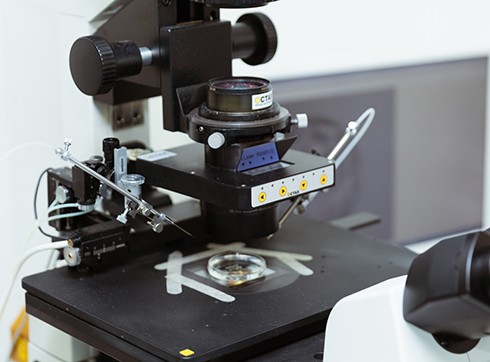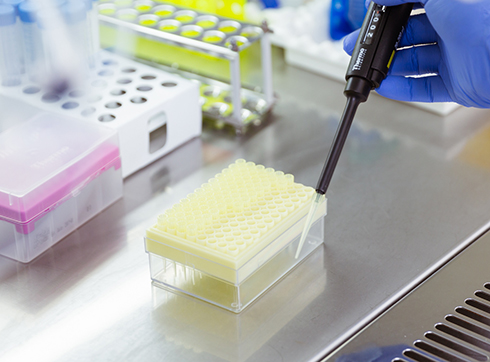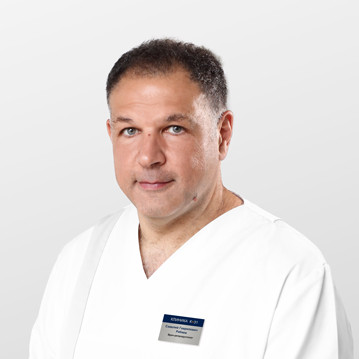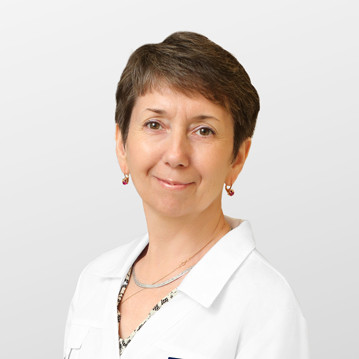Preimplantation genetic diagnosis

specialists

equipment

treatment

Unlike other types of genetic testing, PGD does not affect the IVF protocol plan in any way. The only exception concerns the stage of ovulation stimulation, which is carried out much more intensively. This allows you to get a larger number of oocytes, from which later it will be possible to select the highest quality gametes.
The advantages of PGD in the K + 31 clinic include:
- High information content of genetic research
- Possibility of diagnostics prior to embryo transfer into the uterine cavity
- Reducing the risk of fetal failure and miscarriage
- The ability to determine the sex of a child at the stage of embryogenesis
- Increase the chances of successful implantation of blastocysts in the endometrium
- Minimizing the risk of developing genetic pathologies in a child
- Identification of causes of failed implantation in previous IVF attempts
- Reducing the chance of multiple pregnancies
- Option to select histocompatible embryos for donation to a sister or brother
PGD is one of the most informative research methods to prevent the conception of a child. with severe hereditary diseases. At the K+31 clinic, diagnostics are carried out by highly qualified embryologists and geneticists. If necessary, patients can order a separate study to determine a specific disease or a whole complex of genetic abnormalities.
Preimplantation genetic diagnosis - performed to identify gene and chromosomal abnormalities, which is carried out before embryo transfer into the uterine cavity. The examination is carried out as part of the IVF protocol as prescribed by a specialist or at the request of the patient. PGD allows you to identify chromosomal abnormalities, as well as the likelihood of transferring genetic diseases to the fetus even before embryo transfer to the uterus.
The examination is carried out in order to identify a number of genetic diseases caused by pathological changes in the DNA structure. Patients who have undergone PGD as part of the IVF protocol are much less likely to experience fetal fading in early pregnancy, spontaneous miscarriages and premature births.
The main goals of genetic testing at the K+31 Center for Reproductive Medicine are:
With the help of this doctor, specialists from the K+31 Reproduction Center can diagnose more than 150 types of genetic abnormalities in embryos. Thanks to this, reproductologists and embryologists choose only viable diploid cells for replanting, which increases the chances of having a healthy baby.

Appointment to the doctor
Pre-implantation diagnosis can be performed at the request of the patients themselves. But in most cases, PGD is resorted to in the presence of special medical indications:
- Hereditary diseases in parents
- Impaired spermatogenesis in men
- Genetic diseases in close relatives
- Hereditary pathologies in one of the spouses
- Frequent spontaneous abortions in women
- More than 2 failed IVF attempts
- The age of the patient is over 35-40 years old
- Genetic and chromosomal abnormalities in oocytes
Genetics also find out the Rh factor of the fetus, which is necessary to exclude hemolytic disease in case of Rh conflict with the mother's body.


In the K+31 clinic, diagnostics are carried out by specialists in the field of genetics, reproduction and embryology. Doctors with a high degree of qualification and extensive practical experience select only viable and healthy embryos for IVF.
After receiving the embryos under in vitro conditions, specialists conduct an examination to identify diseases such as:
- Lymphoma
- Myodystrophy
- Torsion dystonia
- Leukemia
- Broken X Syndrome
- Neurofibromatosis
- Down Syndrome
- Hemophilia
- Retinitis pigmentosa
- Gaucher disease
- Cystic fibrosis
- Achondroplasia
- Phenylketonuria
- Hettington's disease
- Retinoblastoma
- Alpert Syndrome
- Aneuploidy, etc.
If one of the above diseases is detected, the embryo is not used for IVF. The selection of the most viable embryos increases the chances of a successful conception and pregnancy by an average of 17-23%.
Eggs and embryos can be used for diagnostics. In the second case, the survey will be more informative, since its results can reveal deviations. not only in the maternal, but also in the paternal genetic material.
The procedure is carried out in 2 stages:
During PGD, a specialist performs a biopsy in order to obtain one blastomere from an embryo that is in the cleavage stage. The procedure is carried out 3-5 days after the fertilization of oocytes by spermatozoa. The biopsy does not interfere with the further development of the embryo, and also does not provoke the development of any diseases in the future.
In the K+31 clinic, cells are harvested using a laser gun, which significantly reduces the risk of cell damage. After that, the geneticist conducts a DNA test, the results of which assess the risks of developing hereditary diseases in the fetus.
Price
Make an appointment at a convenient time on the nearest date
Our doctors

This award is given to clinics with the highest ratings according to user ratings, a large number of requests from this site, and in the absence of critical violations.

This award is given to clinics with the highest ratings according to user ratings. It means that the place is known, loved, and definitely worth visiting.

The ProDoctors portal collected 500 thousand reviews, compiled a rating of doctors based on them and awarded the best. We are proud that our doctors are among those awarded.











